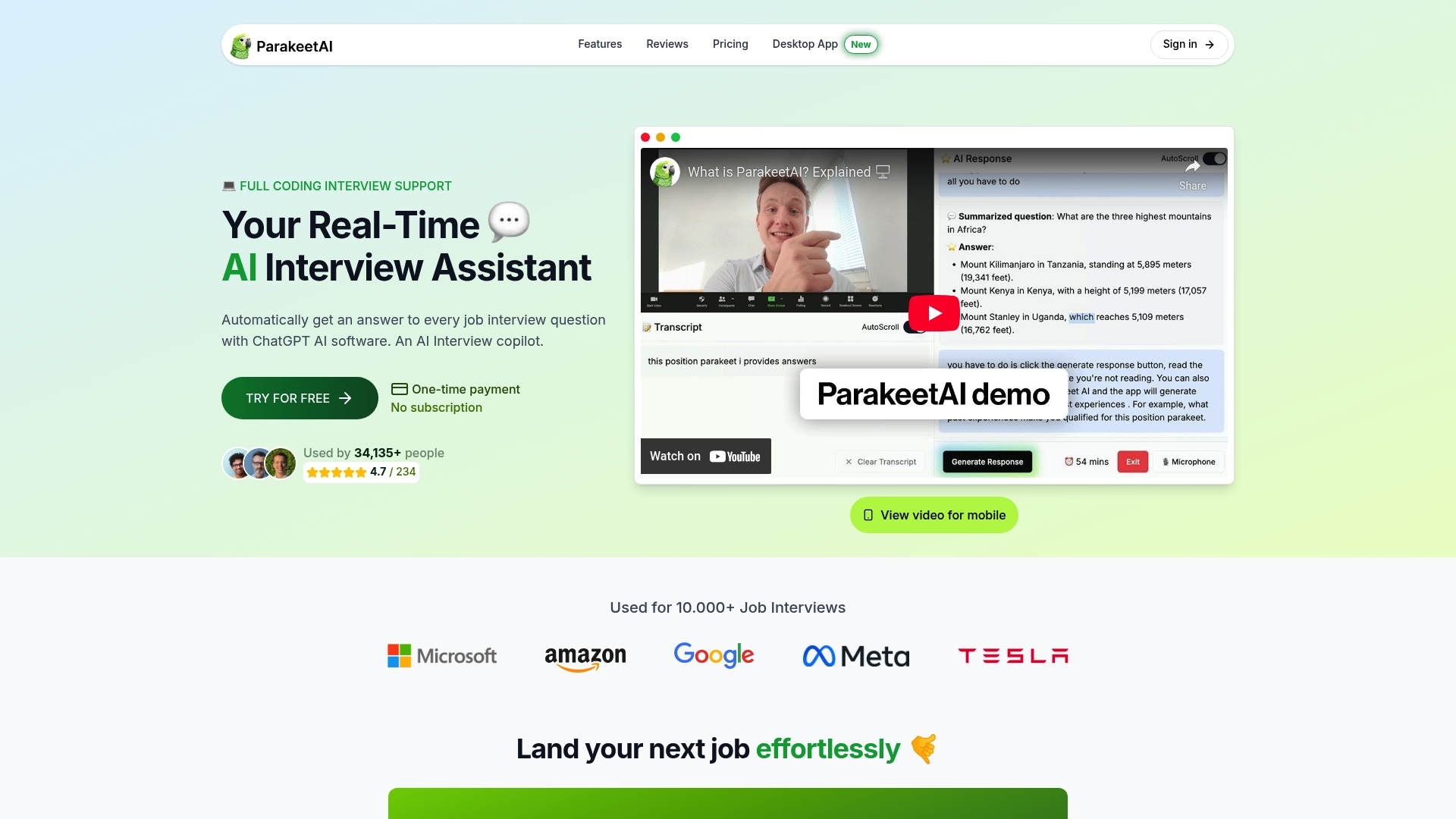7 Essential HR Interview Questions You Should Know

Everyone knows HR interviews can make or break a job hunt. Nearly 9 out of 10 hiring decisions hinge on how you answer just a handful of questions. Sounds intimidating, right? Most people get so busy practicing answers that they completely overlook the real purpose behind those questions, which could be the missing piece that sets you apart from the crowd.
Table of Contents
- Understanding Hr Interview Questions Purpose
- Common Hr Interview Questions To Expect
- Behavioral Hr Questions And How To Answer Them
- Situational Hr Interview Questions Explained
- Tips For Crafting Your Personal Hr Answers
- Mistakes To Avoid When Answering Hr Interview Questions
- How To Follow Up After Your Hr Interview
Quick Summary
| Takeaway | Explanation |
|---|---|
| Understand HR questions’ purpose | They assess professional fit, skills, and alignment with the organization. |
| Prepare for common HR questions | Anticipate standard inquiries like strengths and career goals to craft effective responses. |
| Utilize the STAR method | This structured approach helps articulate past experiences clearly during behavioral questions. |
| Avoid common interview mistakes | Steer clear of generic answers and negative talk about past employers to maintain professionalism. |
| Follow up appropriately | Send a thank-you note within 24 hours and express continued interest without being pushy. |
1: Understanding HR Interview Questions Purpose
HR interview questions serve as a critical gateway between job candidates and potential employers, acting as a strategic tool for evaluating professional compatibility and assessing an individual’s potential within an organization. These questions go far beyond simple fact-finding and represent a nuanced method of understanding a candidate’s professional capabilities, interpersonal skills, and cultural alignment.
At their core, HR interview questions aim to reveal insights that cannot be gleaned from a resume alone. They help employers uncover deeper dimensions of a candidate’s professional persona by exploring several key aspects:
- Evaluating communication skills and articulation abilities
- Understanding professional motivations and career objectives
- Assessing problem-solving capabilities and adaptability
- Determining cultural and team fit within the organization
The purpose of these questions extends beyond mere information gathering. According to Harvard Business Review, interviews are a sophisticated assessment mechanism designed to predict future job performance and potential. Employers seek to understand not just what skills a candidate possesses, but how they might apply those skills in real-world scenarios.
Successful HR interviews require a delicate balance between structured questioning and genuine conversation. Candidates who understand this dynamic can transform an interview from a mere interrogation into a meaningful professional dialogue. By recognizing that each question represents an opportunity to showcase their unique value proposition, job seekers can navigate interviews more strategically.
Ultimately, HR interview questions are a mutual exploration process. They allow employers to evaluate candidates while simultaneously providing candidates a window into the organizational culture and potential career trajectory. Learn more about interview preparation with our AI interview assistant.
2: Common HR Interview Questions to Expect
Navigating the landscape of HR interviews requires understanding the most frequently asked questions that candidates are likely to encounter. These questions are strategically designed to reveal a candidate’s professional capabilities, personal attributes, and potential fit within an organization.
Employers typically structure their interviews around a set of standard questions that help them evaluate a candidate’s suitability. According to Glassdoor, some of the most prevalent HR interview questions include:
- “Tell me about yourself”
- “Why do you want to work here?”
- “What are your greatest strengths and weaknesses?”
- “Where do you see yourself in five years?”
Preparation is key when facing these standard inquiries. Each question represents an opportunity to showcase your professional narrative, demonstrate self-awareness, and align your personal goals with the organization’s objectives. The most effective responses blend personal insights with professional ambitions, creating a compelling picture of your potential value.
Some questions are designed to assess your problem-solving skills and adaptability. Employers want to understand how you handle challenges, work under pressure, and collaborate with team members. Questions like “Describe a difficult work situation and how you overcame it” or “Tell me about a time you failed and what you learned” are meant to probe your resilience and growth mindset.
Interestingly, the context of these questions can vary significantly across different industries and organizational cultures. Technical roles might emphasize skill-specific queries, while creative positions could focus more on adaptability and innovative thinking.
Discover advanced interview preparation techniques with our AI interview assistant. The key is not just to answer questions, but to transform each response into a strategic narrative that highlights your unique professional value proposition.
3: Behavioral HR Questions and How to Answer Them
Behavioral HR interview questions represent a sophisticated approach to understanding a candidate’s past performance and predicting future workplace behavior. These questions dig deeper than traditional inquiries, seeking to uncover real-world problem-solving skills and professional adaptability.
According to LinkedIn Talent Solutions, behavioral questions are designed to reveal how candidates have navigated complex professional scenarios. Employers use these questions to understand a candidate’s thought processes, emotional intelligence, and practical decision-making skills.
Typical behavioral questions often begin with phrases like “Tell me about a time when…” or “Describe a situation where…”. These prompts require candidates to provide specific, concrete examples from their professional experience. Key areas of exploration include:
- Handling workplace conflicts
- Managing challenging team dynamics
- Demonstrating leadership under pressure
- Adapting to significant organizational changes
The STAR method (Situation, Task, Action, Result) provides an excellent framework for crafting compelling responses. This approach helps candidates structure their answers systematically, ensuring they communicate their experiences clearly and effectively.
Successful candidates understand that behavioral questions are not about perfect scenarios, but about demonstrating growth, self-awareness, and professional maturity. Employers are less interested in whether you encountered challenges and more focused on how you approached and learned from those experiences.
Preparing for behavioral questions requires thoughtful reflection on your professional journey. Candidates should identify 4-5 significant work experiences that showcase their ability to solve problems, collaborate effectively, and drive positive outcomes.
Enhance your interview preparation with advanced AI-powered techniques. Remember, the goal is not to memorize answers but to develop a narrative that authentically represents your professional capabilities.
4: Situational HR Interview Questions Explained
Situational HR interview questions represent a sophisticated method of evaluating a candidate’s professional judgment and potential workplace behavior. These questions present hypothetical scenarios designed to reveal how an individual might respond to complex work-related challenges.
According to Society for Human Resource Management, situational questions are strategically crafted to assess a candidate’s critical thinking, problem-solving skills, and emotional intelligence. Unlike behavioral questions that explore past experiences, situational questions project candidates into potential future scenarios.
Typical situational questions often explore complex workplace dynamics, testing a candidate’s ability to navigate challenging professional environments. Key areas of exploration include:
- Handling potential conflicts with colleagues
- Managing tight deadlines and resource constraints
- Responding to ethical dilemmas
- Adapting to unexpected workplace changes
The primary objective of these questions is not to identify a single correct answer, but to understand the candidate’s reasoning process, communication approach, and professional values. Employers want to see how candidates think on their feet, demonstrate critical reasoning, and articulate a structured approach to problem-solving.
Successful candidates approach situational questions by breaking down the hypothetical scenario, considering multiple perspectives, and presenting a balanced, thoughtful response. They demonstrate their ability to analyze complex situations, weigh potential consequences, and propose practical solutions that align with organizational values and professional ethics.
Preparing for situational questions requires developing a flexible mental framework. Candidates should practice articulating clear, logical responses that showcase their ability to think strategically and maintain professional composure under pressure.
Improve your interview readiness with advanced AI-powered techniques. Remember, the goal is to demonstrate your potential as a thoughtful, adaptable professional who can navigate complex workplace challenges with insight and integrity.
5: Tips for Crafting Your Personal HR Answers
Crafting compelling HR interview answers requires a strategic approach that transforms simple responses into powerful professional narratives. Authenticity combined with strategic communication is the key to making a lasting impression during interviews.
According to Forbes Career Development, successful interview responses should balance personal storytelling with professional relevance. The goal is to create answers that are genuine, structured, and directly aligned with the job’s requirements.
Effective interview answer strategies include:
- Preparing concrete, specific examples from professional experience
- Practicing responses without sounding rehearsed
- Connecting personal stories to broader professional competencies
- Demonstrating self-awareness and continuous learning
The STAR method remains the gold standard for structuring interview responses. This approach helps candidates organize their thoughts systematically by breaking down responses into Situation, Task, Action, and Result. Each component serves a critical purpose in creating a comprehensive and engaging narrative.
Professional communication experts recommend avoiding generic or overly broad statements. Instead, candidates should focus on quantifiable achievements and specific scenarios that highlight their unique skills and problem-solving capabilities. This approach transforms standard responses into compelling professional stories that capture an interviewer’s attention.
Nonverbal communication plays an equally important role in delivering interview answers. Maintaining eye contact, speaking with confidence, and demonstrating positive body language can significantly enhance the impact of your responses. Your delivery is just as crucial as the content of your answers.
Unlock advanced interview preparation techniques with our AI interview assistant. Remember, the most successful interview answers are those that tell a story, demonstrate value, and leave a memorable impression of your professional potential.
6: Mistakes to Avoid When Answering HR Interview Questions
Successful interviews demand more than just preparation they require an understanding of critical communication pitfalls that can derail even the most qualified candidates. Recognizing and avoiding common mistakes can significantly enhance your chances of making a positive impression.
According to Harvard Business Review, professional candidates must be strategic about their responses and demeanor. The most common interview mistakes often stem from a lack of self-awareness and poor communication strategies.
Candidates should be particularly vigilant about avoiding these fundamental errors:
- Providing overly generic or rehearsed responses
- Speaking negatively about previous employers
- Displaying unprofessional body language
- Failing to demonstrate genuine interest in the role
Negative communication patterns can quickly undermine your professional credibility. Criticizing previous employers, managers, or colleagues signals potential interpersonal challenges and suggests an inability to handle workplace dynamics professionally. Interviewers are looking for candidates who can navigate complex professional environments with grace and maturity.
Nonverbal communication plays an equally critical role in interview success. Subtle cues like poor eye contact, nervous fidgeting, or defensive postures can communicate volumes about your confidence and professionalism. Candidates must be intentional about presenting a composed, engaged demeanor that reflects their professional capabilities.
Additionally, candidates often make the mistake of being unprepared or providing superficial responses. Research suggests that interviewers can quickly discern between candidates who have done their homework and those who are improvising. Substantive answers that demonstrate deep understanding of the role and organization are always preferred.
Enhance your interview preparation with advanced AI-driven techniques. Remember, interviews are not just about answering questions but about presenting yourself as a thoughtful, professional, and potentially valuable team member.
7: How to Follow Up After Your HR Interview
The post-interview period represents a critical phase in your job application process, where strategic communication can significantly influence your candidacy. Effective follow-up demonstrates professionalism, reinforces your interest, and keeps you top of mind for potential employers.
According to Career Builder, professional follow-up requires a delicate balance of persistence and patience. The goal is to remain engaged without appearing desperate or intrusive.
Key considerations for post-interview communication include:
- Sending a personalized thank-you email within 24 hours
- Referencing specific discussion points from the interview
- Maintaining a professional and appreciative tone
- Avoiding multiple aggressive follow-up attempts
Timing is everything when it comes to post-interview communication. A well-crafted thank-you email sent within 24 hours demonstrates your enthusiasm and attention to detail. This correspondence should be concise, error-free, and personalized to reflect the specific conversation you had during the interview.
Professional follow-up extends beyond a simple thank-you note. Candidates should be prepared to provide additional information if requested and maintain a proactive yet patient approach. Most organizations have specific timelines for making hiring decisions, and respecting these processes is crucial.
If you have not heard back within the expected timeframe, a polite inquiry is appropriate. Your follow-up should be professional, reiterating your interest in the position and asking about the status of your application. However, it is essential to avoid seeming pushy or demanding.
Discover advanced interview follow-up strategies with our AI interview assistant. Remember, effective follow-up is an art that combines gratitude, professionalism, and strategic communication.
Transform Your HR Interview Performance With Real-Time AI Guidance
Getting past tough HR interview questions is a challenge for many job seekers. This article highlights how critical it is to give strong, authentic answers to behavioral and situational questions. But when the pressure is on, it is easy to forget your best stories or struggle to structure your responses clearly. Even with preparation, nerves and unexpected questions can make you lose your confidence. The risk of giving vague or generic answers can cost you the job offer you deserve.
Below is a comprehensive table summarizing the key points, steps, and outcomes discussed throughout the article on mastering HR interview questions.
| Section / Topic | Key Points & Outcomes |
|---|---|
| Purpose of HR Interview Questions | Evaluate professional fit, communication skills, problem-solving, and cultural alignment beyond the resume. |
| Common HR Interview Questions | Expect standard questions about yourself, motivations, strengths/weaknesses, and career goals. |
| Behavioral Questions & STAR Method | Use past scenarios to demonstrate skills; apply STAR (Situation, Task, Action, Result) for clear answers. |
| Situational Questions | Hypothetical scenarios test decision-making, judgment, adaptability, and alignment with company values. |
| Crafting Effective Answers | Prepare structured, specific examples; be authentic; show self-awareness and link stories to job relevance. |
| Avoiding Common Mistakes | Don’t give generic answers, speak negatively about past employers, or show poor body language/interest. |
| Post-Interview Follow-up | Send a personalized thank-you within 24 hours; be polite, specific, and patient in ongoing communications. |

Imagine having a tool that listens to your interview and suggests smart, personalized answers in real time. Parakeet AI helps you respond confidently and stay composed during any interview. Our AI assistant uses the techniques described in this article including the STAR method and other proven strategies so you always know what to say. Do not leave your next opportunity up to chance. Try our AI interview assistant now and turn every interview question into a moment to impress.
Frequently Asked Questions
What are HR interview questions aimed at assessing?
HR interview questions are designed to evaluate a candidate’s professional capabilities, interpersonal skills, cultural fit, and problem-solving abilities. They help employers gauge not only the skills listed on a resume but also how those skills might be applied in real-world scenarios.
How should I prepare for common HR interview questions?
Preparation involves understanding frequently asked questions such as “Tell me about yourself” or “What are your greatest strengths and weaknesses?” Crafting your personal narrative and aligning your goals with the organization’s objectives can enhance your responses.
What is the STAR method and how can I use it in interviews?
The STAR method stands for Situation, Task, Action, and Result. It’s a structured approach for answering behavioral interview questions by providing a clear narrative about your past experiences, ensuring your answers are comprehensive and compelling.
What mistakes should I avoid in HR interviews?
Common mistakes include providing generic responses, displaying negative body language, criticizing previous employers, and failing to demonstrate genuine interest in the role. Avoiding these pitfalls can enhance your credibility and overall interview performance.




